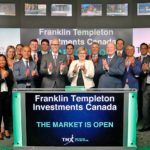
Regular Hub guest blogger Robb Engen returned the favour earlier this week by inviting me to write a blog for his site Boomer & Echo. You can find that version by clicking on the highlighted headline: What I’ve learned so far in Retirement.
For convenience, it also appears below, including original links, with a Hub headline and a few subheadings that better reflect the central point that I personally don’t consider myself fully retired yet. This version has a few extra points added, plus two links to FIRE pieces that didn’t appear in the original B&E version. And as a bonus, it includes near the end an update on some of our recent travels, which hopefully reinforce some of the broader themes described in this blog.
Which begins as follows:
Through most of the five years the Financial Independence Hub has existed, Boomer & Echo’s Robb Engen has been kind enough to allow the “Hub” to republish some of his blogs that first appeared on his own site.
He recently suggested we turn the tables and invited me to write a guest blog for Boomer & Echo recounting some of the lessons I’ve learned in my decades as a financial writer and what I’ve learned so far in Retirement. Here it is.
For starters, my age alone qualifies me as a Boomer: I recently turned 66, but do not consider myself retired: at most, I consider myself semi-retired. As Robb would know, running a website is no trivial undertaking and I aim for new content 5 days a week, 52 weeks a year. That and writing for a handful of media outlets keeps me fairly occupied, although the privilege of doing this from home means I gain a couple of hours that would formerly have been expended on commuting.
Indeed my last full-time salaried staff job that involved commuting and bosses ended five years ago, when I stepped down from the editorship of MoneySensemagazine. That two-year stint followed 19 years at the National Post/Financial Post, most of which time I was the paper’s personal finance columnist.
Those familiar with my books or blogs would not expect me to describe myself as Retired, since my shtick has long been Financial Independence, or my contraction for it: Findependence. That’s as in Findependence Day, a financial novel I wrote in 2008 (Canadian edition) and 2013 (US edition.)
As I have often written, I do not regard the terms Retirement and Findependence as synonyms. You can be Findependent but not Retired, as I am; but it’s hard to be Retired if you’re not Findependent.
In the old days, the traditional “full-stop” retirement was considered to happen at age 65, which even today is when you can first start receiving Old Age Security benefits. (And yes, I do now collect OAS, for reasons I’ve explained elsewhere). But “Findependence Day” can be years or even decades earlier: you may still choose to work for money but on your terms: the magic day is when you’re completely free of debt and have enough saved (and properly invested) that even if you never earned another dime you could meet all your major living expenses, assuming some variant of the 4% Rule.
Even if I considered myself as having “retired” at age 61, that’s relatively old by the standards of the so-called FIRE movement, which of course stands for Financial Independence Retire Early. True FIRE people aspire to “retire” in their 30s or 40s, sometimes even in their 20s, typically by saving like demons for a decade or so: in the most extreme cases they may save something like 50% of their income.
I’m more like Robb, where he described in his blog why he wasn’t yet paying down his mortgage because he first wanted to maximize RRSP and TFSA savings. Mind you, my books do argue that “the foundation of financial independence is a paid-for home” but I’m old school and we bought our first home (of only two) back in the 1980s, when Toronto real estate was pricey but hardly at the lofty levels of today. Of course, interest rates were much higher then: close to 12% in our case, so we were motivated to pay off the mortgage as quickly as possible.
I don’t see myself as an early retiree or a “FIRE” blogger
There have been some interesting critiques of FIRE, nicely summarized by Fritz Gilbert in a guest blog for the Hub: Is the Fire community full of hypocrites? Fritz is an American Pluto award winning blogger for RetirementManifesto.com, who I’ve come to know through our joint membership in the Younger Next Year 2019 Facebook group, which I helped found and have helped moderate (along with the site’s prime mover Vicki Peuckert Cook) since late 2017. Fritz “retired” himself at age 55 about this time last year. But as we would both argue, he’s hardly retired in the classical sense of the term. Continue Reading…
 What are the best investment vehicles for holding a safe and highly liquid Emergency Fund? That’s the focus of the third in my latest series of blogs for Motley Fool Canada introducing the basic principles of establishing Financial Independence.
What are the best investment vehicles for holding a safe and highly liquid Emergency Fund? That’s the focus of the third in my latest series of blogs for Motley Fool Canada introducing the basic principles of establishing Financial Independence.









